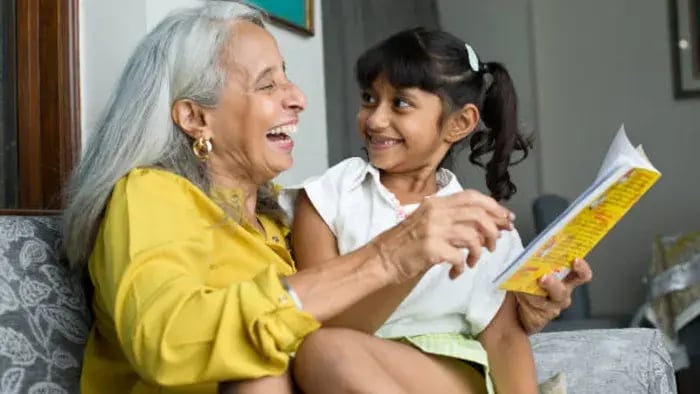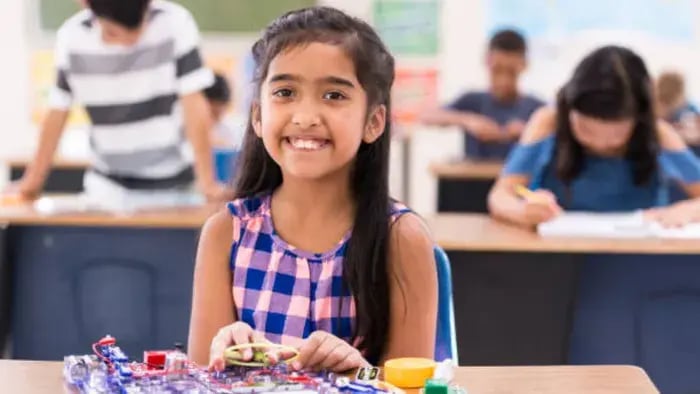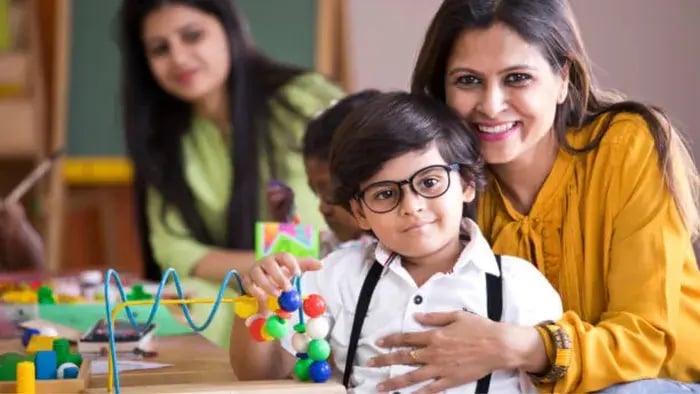- Treasure Hunt with Clues
- Storytelling with a Twist
- DIY Science Corner
- Math Games with Everyday Objects
- Word Jar
- Map Making
- Puzzle Time
- Kitchen Math and Reading
- Emotion Charades
Introduction
Kids are naturally curious, whether it's about science, nature, or how things work. This curiosity can be turned into exciting learning experiences with the right kind of engagement. Instead of traditional methods, hands-on tasks that blend play, creativity, and real-world thinking make concepts easier to grasp and more enjoyable to explore. From solving brain teasers and designing simple experiments to imaginative storytelling, interactive learning sparks curiosity and encourages a deeper understanding. When learning feels like play, kids stay interested, ask more questions, and develop a lifelong love for discovering new things.

These experiences do more than just teach facts, and they help kids develop essential life skills such as observation, communication, logical thinking, and teamwork. Kids learn to ask questions, make connections, and approach problems with confidence. When learning feels personal and fun, they retain knowledge longer and are more motivated to explore more.
By introducing fun, hands-on learning methods, you are supporting not only academic development but also emotional growth and independent thinking. The right activities balance structure and freedom so kids can learn at their own pace and develop their strengths.
9 Fun Learning Activities for Kids

Learning should be fun and meaningful so kids stay curious, confident and connected to the world around them. These activities are not just fun – they also build thinking, communication, and problem-solving skills that will stay with your child for life.
Treasure Hunt with Clues
Create a treasure hunt using simple clues based on colors, shapes, numbers or letters. As your child follows each step, they build reasoning skills and memory. You can customise the theme to what your child is learning – like animals, seasons, or new words – making it a fun mix of movement and mental work.
Storytelling with a Twist
Get your child to create stories using random items from around the house or flashcards with characters and places. This activity helps to build creativity, vocabulary, and sentence formation. Let them tell the story aloud or draw it; this will help develop their verbal skills and self-expression.
DIY Science Corner
Set up a small area for basic science activities like making a paper bridge, mixing colors or testing what floats. These hands-on experiments spark natural curiosity while introducing important concepts, such as cause and effect, observation, and comparison. Always talk through what’s happening to help your child make sense of each discovery.
Math Games with Everyday Objects
Use things like spoons, buttons, or fruit to teach counting, addition, and subtraction. Let your child sort, group, or measure them. These simple games turn abstract math into something your child can visualise and enjoy, and they also help to learn numbers in a stress-free way.
Word Jar
Write age-appropriate words on slips of paper and put them in a jar. Each day, your child picks one out and uses it in a sentence, drawing, or story. This fun habit helps with vocabulary, comprehension, and spelling, all while encouraging independent thinking.
Map Making
Ask your child to draw a map of your home, a walk to school, or an imaginary land. This builds spatial awareness, creativity, and attention to detail. It also aids in sequencing, directions, and recalling specific features, all of which are useful for real-life learning.
Puzzle Time
Jigsaw puzzles, shape sorters, or homemade matching games help children develop patience, logic, and visual spatial reasoning. Working through a puzzle encourages your child to try different approaches and stay engaged with a goal in mind, skills that apply to all subjects.
Kitchen Math and Reading
Ask your child to help read simple recipes, measure ingredients, and count portions. This supports literacy, basic math, and following instructions. It also builds independence and confidence while turning an everyday task into a meaningful learning experience.
Emotion Charades
Write different emotions on cards and act them out together. Your child learns to identify facial expressions, body language, and tone of voice, skills that support social and emotional development. Discussing what each feeling means deepens emotional awareness and its connection to others.
Conclusion

Each of these activities turns everyday moments into fun learning opportunities. When your child is involved and engaged, they learn naturally and happily. These small efforts create big results, helping your child build not only academic knowledge but also creativity, confidence, and real-life skills.
Her love for storytelling began with reading her grandfather’s speeches, where Tarishi saw the power of words in creating lasting memories. Combining her passions for food and writing, she has turned her life into a fulfilling path of sharing stories that celebrate flavours and how food brings communities together.
The views expressed are that of the expert alone.
The information provided in this content is for informational purposes only and should not be considered a substitute for professional medical advice, diagnosis, or treatment. Always seek the advice of your physician or another qualified healthcare provider before making any significant changes to your diet, exercise, or medication routines.
















